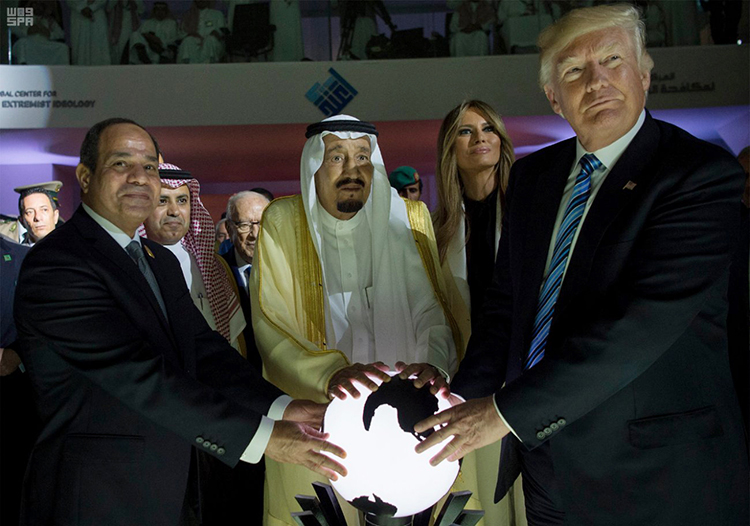HM Salman bin Abdulaziz Al Saud
HM Sheikh Khalifa bin Zayed bin Sultan Al Nayhan
HM Hamad bin Isa Al Khalifa
President Abdel Fattah al-Sisi
June 28, 2017
Your Majesties, Your Excellency,
We at the Committee to Protect Journalists, an independent, nonprofit press freedom organization, write to urge you to drop your collective demand that all news outlets directly or indirectly funded by Qatar be closed as a condition for restoring diplomatic relations with the state and lifting the partial blockade your governments have together imposed on it.
CPJ takes no position on this diplomatic dispute. However, the demand to shutter all Qatari-funded media–including the international network Al-Jazeera, but also the news websites Al-Arabi Al-Jadeed, Middle East Eye, Arabi21, Egypt’s Rassd news agency, and others–shows clear contempt for the principle of press freedom and to your countries’ treaty commitments to the rights to free expression and to freely receive and impart information. The demand also represents a clear attempt to interfere in the internal affairs of the countries where these media companies operate–under the guise of demanding that Qatar not interfere in other countries’ internal affairs, thereby limiting the diversity of sources for information and views in the region.
For years, and in recent weeks especially, your governments have taken a series of grave steps to censor the media in response to diplomatic tensions with Qatar. The steps go beyond Qatari media. Saudi Arabia remains among the world’s most censored countries. In the United Arab Emirates, the attorney general threatened to jail anyone criticizing the country’s approach to the dispute with Qatar for 15 years. In Bahrain, authorities shuttered the independent newspaper Al-Wasat, which is not funded by Qatar, leading the newspaper to stop paying its staff and threatening its survival. In Egypt, authorities have blocked access to news websites, including those with no ties to Qatar, and have blocked access to technical tools for circumventing that censorship. We urge you to instruct your governments to reverse these steps immediately.
We urge you again to lift restrictions on the media in your respective countries, to free all journalists jailed for their work, and to cease attempting to force other countries to close media outlets. We believe media freedom is a right and an important element of successful societies, not a bargaining chip for international disputes.
Sincerely,
Joel Simon
Executive Director
